Yosra Hajjaji
Sustainable Palm Tree Farming: Leveraging IoT and Multi-Modal Data for Early Detection and Mapping of Red Palm Weevil
Jun 29, 2023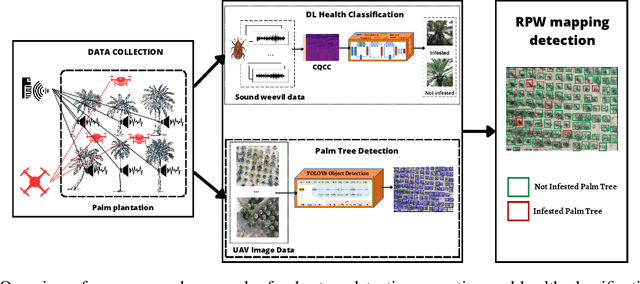


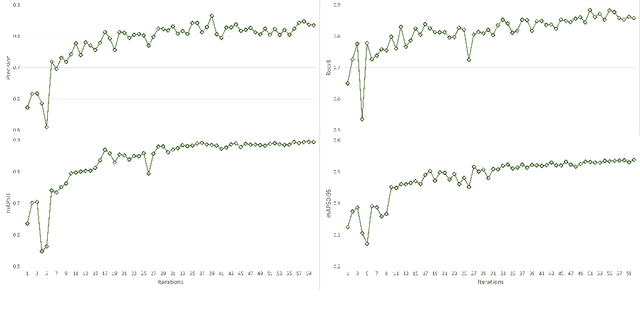
Abstract:The Red Palm Weevil (RPW) is a highly destructive insect causing economic losses and impacting palm tree farming worldwide. This paper proposes an innovative approach for sustainable palm tree farming by utilizing advanced technologies for the early detection and management of RPW. Our approach combines computer vision, deep learning (DL), the Internet of Things (IoT), and geospatial data to detect and classify RPW-infested palm trees effectively. The main phases include; (1) DL classification using sound data from IoT devices, (2) palm tree detection using YOLOv8 on UAV images, and (3) RPW mapping using geospatial data. Our custom DL model achieves 100% precision and recall in detecting and localizing infested palm trees. Integrating geospatial data enables the creation of a comprehensive RPW distribution map for efficient monitoring and targeted management strategies. This technology-driven approach benefits agricultural authorities, farmers, and researchers in managing RPW infestations and safeguarding palm tree plantations' productivity.
Leveraging Artificial Intelligence Techniques for Smart Palm Tree Detection: A Decade Systematic Review
Sep 12, 2022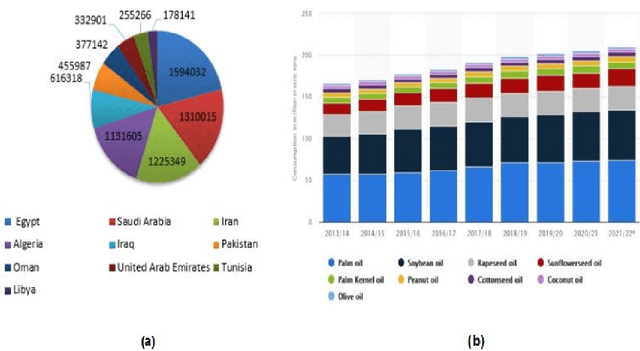

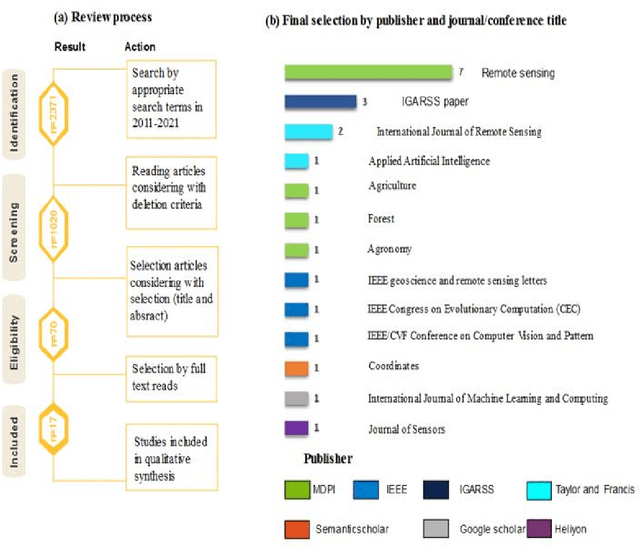
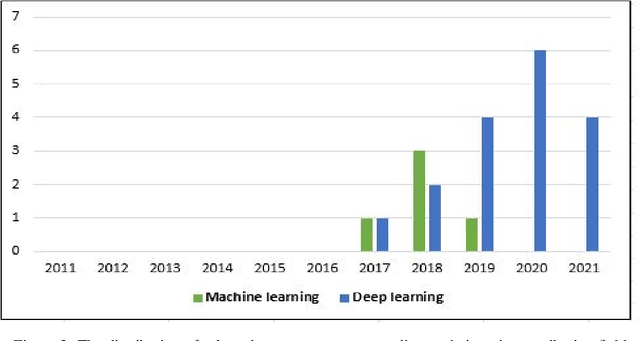
Abstract:Over the past few years, total financial investment in the agricultural sector has increased substantially. Palm tree is important for many countries' economies, particularly in northern Africa and the Middle East. Monitoring in terms of detection and counting palm trees provides useful information for various stakeholders; it helps in yield estimation and examination to ensure better crop quality and prevent pests, diseases, better irrigation, and other potential threats. Despite their importance, this information is still challenging to obtain. This study systematically reviews research articles between 2011 and 2021 on artificial intelligence (AI) technology for smart palm tree detection. A systematic review (SR) was performed using the PRISMA approach based on a four-stage selection process. Twenty-two articles were included for the synthesis activity reached from the search strategy alongside the inclusion criteria in order to answer to two main research questions. The study's findings reveal patterns, relationships, networks, and trends in applying artificial intelligence in palm tree detection over the last decade. Despite the good results in most of the studies, the effective and efficient management of large-scale palm plantations is still a challenge. In addition, countries whose economies strongly related to intelligent palm services, especially in North Africa, should give more attention to this kind of study. The results of this research could benefit both the research community and stakeholders.
 Add to Chrome
Add to Chrome Add to Firefox
Add to Firefox Add to Edge
Add to Edge